United Nations (UN). Economic and Social Council
IMF, World Bank, ECOSOC (United Nations System) Structure and Organization, Globalization, Trade

The United Nations was founded in 1945 by fifty-one countries with the objective of maintaining peace through international cooperation and global security. Every nation belongs to the UN.
The mission of the Economic and Social Council (ECOSOC) is to coordinate the economic and social work of the UN. As the central forum for debate about international economics, Foreign Trade, and social topics and formulating policy suggestions, the Economic and Social Council plays a key function in international cooperation encouragement.
- Introduction to the United Nations (UN)
- Structure and Organization
- Main bodies of the UN
- Agencies, programs, and subsidiary bodies of the UN
- Secretariat of the UN
- Economic and Social Council (ECOSOC)
- Human Development
- Millennium Development Goals
- United Nations System
- Relations between the UN and the World Trade Organization (WTO)
- United Nations (UN) and Global Trade
Specialized Agencies and Organizations of the UN.
- International Trade Centre
- International Civil Aviation Organization (ICAO)
- International Maritime Organization
- World Intellectual Property Organization (WIPO)
- UN Conference on Trade and Development (UNCTAD)
- Arab Gulf Programme
- UN Commission on International Trade Law (UNCITRAL)
- United Nations Development Program (UNDP)
Regional commissions of the Economic and Social Council (ECOSOC).
- Global Compact of the UN
- United Nations Convention Against Corruption
- Universal Declaration of Human Rights (1948)
- Convention for the Suppression of the Traffic in Persons and the Exploitation of the Prostitution of Others (1949)
- Supplementary Convention on the Abolition of Slavery (1956)
Sample: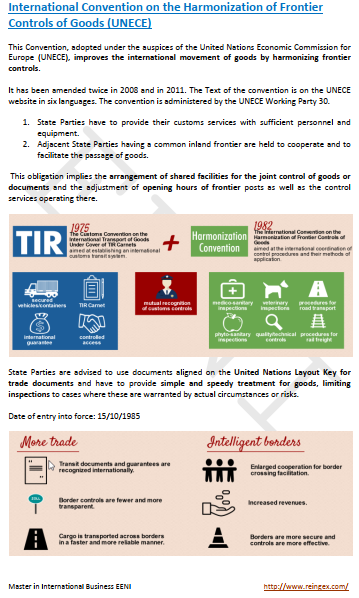
United Nations conventions related to international transport:
- United Nations Convention on the Carriage of Goods by Sea (Hamburg Rules). Hague Rules
- United Nations Convention on Contracts for the International Carriage of Goods Wholly or Partly by Sea (Rotterdam Rules) New York, 2008
- CMR Convention (UN)
- International Party Identification and Location Codes (LOCODES)
- Customs Convention on Containers (CCC, UN) 1972
- Convention Harmonization of Frontier Controls of Goods
- UN Trade Facilitation Implementation Guide
United Nations conventions related to international payments:
- United Nations Convention on Independent Guarantees and Stand-by Letters of Credit
- UNCITRAL Model Law on International Credit Transfers
- United Nations Convention on International Bills of Exchange and International Promissory Notes
- United Nations Convention on Transfer of Credits in International Trade
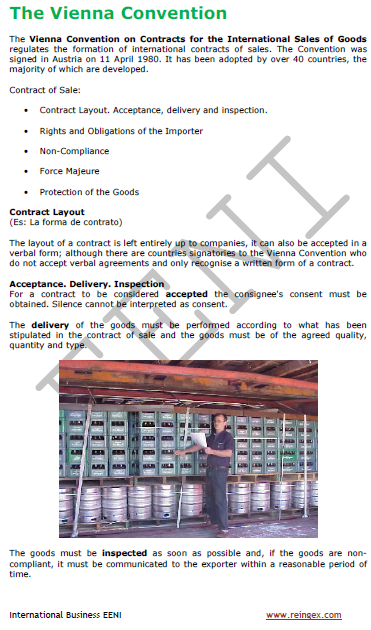
The educational aims of the Subject “United Nations (UN)” are:
- To understand the purposes and structure of the UN
- To learn about role of the Economic and Social Council (ECOSOC)
- To explore the UN System
- To understand the role of the UN on human development in the world
- To learn about specialized agencies, programs, conventions, agreements and subsidiary organs of the UN
- To know how to analyze the socio-economic information offered by the different portals of the UN

The Subject “United Nations” is included within the curriculum of the following academic programs at EENI Global Business School:
Masters: International Business, Foreign Trade.


Languages:  or
or  Nations Unies
Nations Unies  Naciones Unidas.
Naciones Unidas.
Area of Knowledge: Globalization.
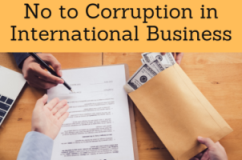
The UN consists of the:
- General Assembly
- Security Council
- Economic and Social Council (ECOSOC)
- Trusteeship Council
- Secretariat
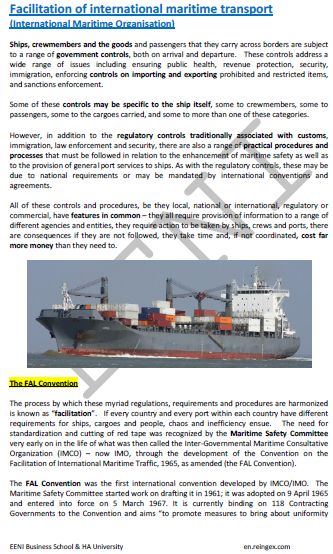
All these institutions are based at in New York. The International Court of Justice is in the Hague (the Netherlands).
The Cairo Declaration on Human Rights in Islam.
United Nations System
The International Monetary Fund, the World Bank, and other twelve institutions (“specialized agencies”) are linked to the UN through agreements. All these institutions have their regulations, budgets, and secretariats. Together with the UN; they are known as the UN System.
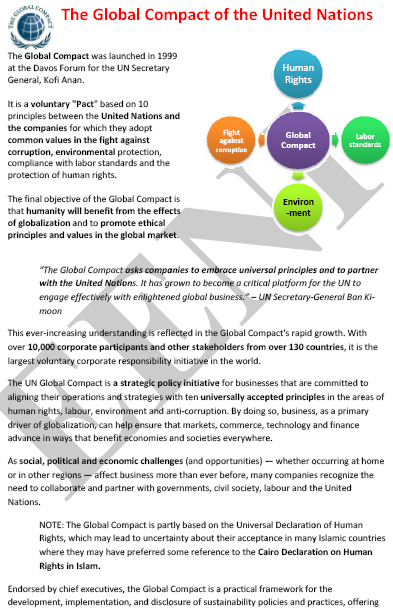
The member states of the Economic Commission for Africa (ECA) are Algeria, Angola, Benin, Burkina Faso, Burundi, Botswana, Cameroon, Cape Verde, Central African Republic, Comoros, Chad, Democratic Republic of the Congo, Djibouti, Equatorial Guinea, Egypt, Eritrea, Eswatini, Ethiopia, Gambia, Gabon, Ghana, Guinea, Guinea-Bissau, Ivory Coast, Kenya, Lesotho, Liberia, Libya, Madagascar, Malawi, Mali, Mauritania, Mauritius, Morocco, Mozambique, Namibia, Niger, Nigeria, Republic of the Congo, Rwanda, São Tomé, Senegal, Seychelles, Sierra Leone, Somalia, South Africa, Sudan, Togo, Tunisia, Tanzania, Uganda, Zambia, Zimbabwe.
The member states of the Economic and Social Commission for Western Asia (ESCWA) are Bahrain, Egypt, Iraq, Jordan, Kuwait, Lebanon, Libya, Morocco, Oman, Palestine, Qatar, Saudi Arabia, Sudan, Syria, Tunisia, the Emirates, and Yemen.
The member states of the Economic and Social Commission for Asia and the Pacific (ESCAP) are Afghanistan, Armenia, Australia, Azerbaijan, Bangladesh, Bhutan, Brunei, Cambodia, Fiji, France, Georgia, India, Indonesia, Iran, Japan, Kazakhstan, Kiribati, Kyrgyz Republic, Laos, Malaysia, Maldives, Marshall Islands, Micronesia, Mongolia, Myanmar, Nauru, Nepal, Netherlands, New Zealand, North Korea, Pakistan, Palau, Papua New Guinea, Philippines, Russia, Samoa, Singapore, Solomon Islands, Sri Lanka, South Korea, Tajikistan, Thailand, East Timor, Tonga, Turkey, Turkmenistan, Tuvalu, UK, U.S., Uzbekistan, Vanuatu, and Vietnam.
- The Associate members (ESCAP) are American Samoa, Cook Islands, French Polynesia, Hong Kong, Macau, New Caledonia, Niue, and the Northern Mariana Islands
The member states of the Economic Commission for Europe (UNECE) are Albania, Andorra, Armenia, Austria, Azerbaijan, Belarus, Belgium, Bosnia and Herzegovina, Bulgaria, Canada, Croatia, Cyprus, Czech Republic, Denmark, Estonia, Finland, France, Georgia, Germany, Greece, Hungary, Iceland, Ireland, Israel, Italy, Kazakhstan, Kyrgyz Republic, Latvia, Liechtenstein, Lithuania, Luxembourg, Macedonia, Malta, Moldova, Monaco, Montenegro, Netherlands, Norway, Poland, Portugal, Romania, Russia, San Marino, Serbia, Slovakia, Slovenia, Spain, Sweden, Switzerland, Tajikistan, Turkey, Turkmenistan, Ukraine, UK, U.S., Uzbekistan.
The member states of the Economic Commission for Latin America and the Caribbean (ECLAC) are Antigua and Barbuda, Argentina, Bahamas, Barbados, Belize, Bolivia, Brazil, Canada, Chile, Colombia, Costa Rica, Cuba, Dominica, Dominican Republic, Ecuador, El Salvador, France, Germany, Grenada, Guatemala, Guyana, Haiti, Honduras, Italy, Jamaica, Japan, Mexico, Netherlands, Nicaragua, Panama, Paraguay, Peru, Portugal, South Korea, Saint Kitts and Nevis, Saint Lucia, Saint Vincent and the Grenadines, Spain, Suriname, Trinidad and Tobago, UK, U.S., Uruguay, and Venezuela.
- The associate members (Economic Commission for Latin America and the Caribbean) are Anguilla, Aruba, British Virgin Islands, Montserrat, Netherlands Antilles, Puerto Rico, Turks and Caicos Islands, United States Virgin Islands
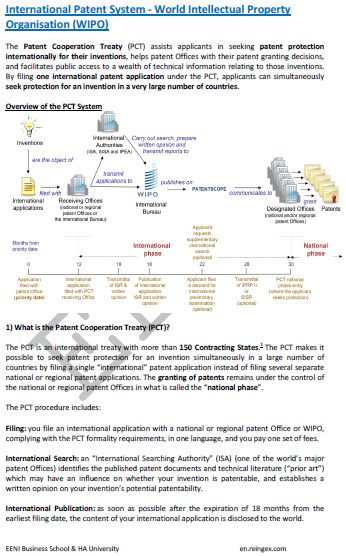
(c) EENI Global Business School (1995-2025)
Top of this page










 WhatsApp
WhatsApp